Online Shopping Over Christmas 2015 â A New Multichannel Era
15 Feb 2016

The Christmas season brings the peak of Ecommerce sales for most online retailers. Over the past few years’ consumers have been getting used to bargain hunting online and getting exceptional digital deals on key shopping days like Black Friday and Cyber Monday, which is driving Ecommerce growth year on year.
2015 has been no exception and Ecommerce is still going from strength to strength. This year we’ve seen Mcommerce grow even further and Multichannel retailers as some of the biggest winners. Take a look at the overview below to find out what happened in Ecommerce over Christmas 2015.

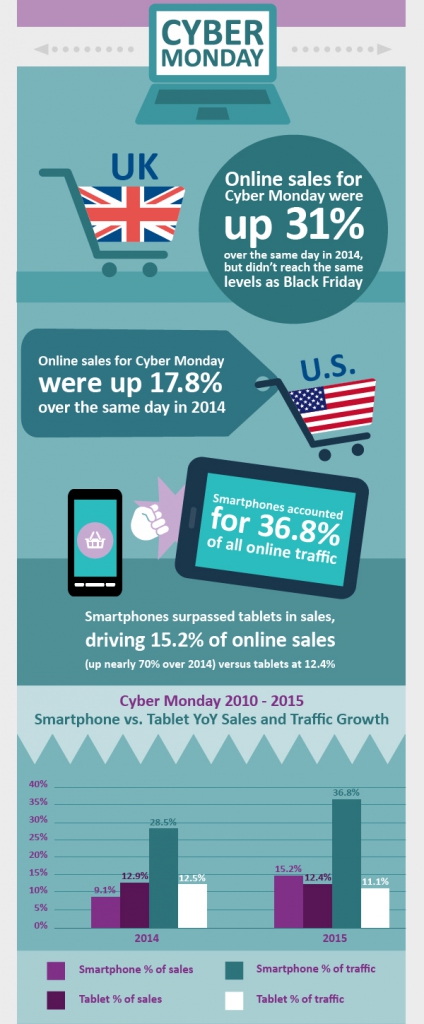
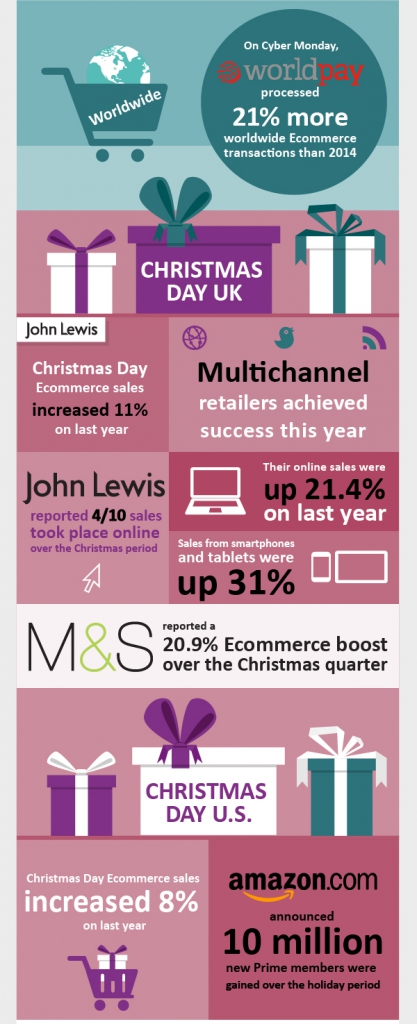
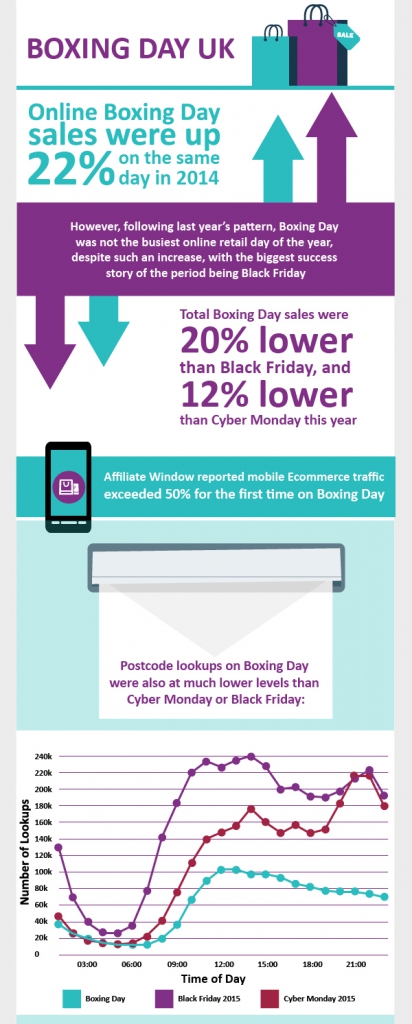
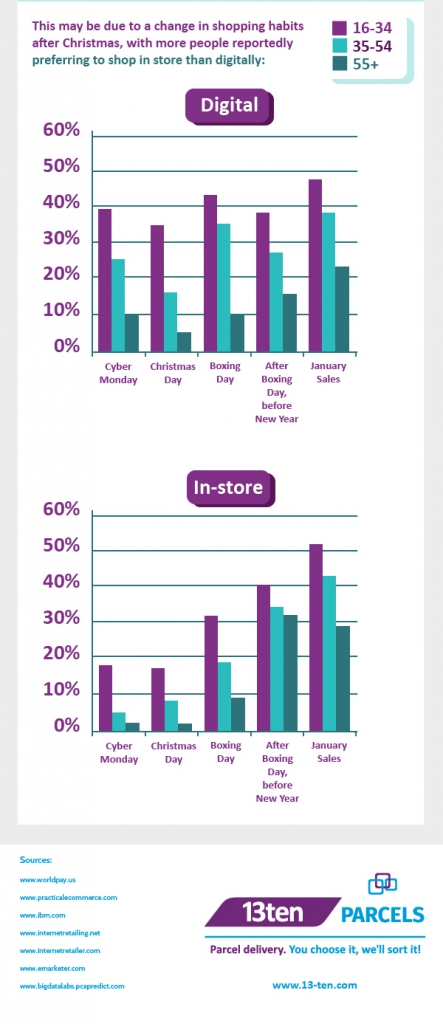
Black Friday 2015

Black Friday is the first key date in the Christmas countdown and many say the most important, we’ll go on to find out more. Before we look in to online Black Friday sales for 2015 let’s remind ourselves what the day is all about.
What Is Black Friday?
Black Friday is regarded as the beginning of the Christmas shopping season in the US. It falls the day after Thanksgiving which is always the fourth Thursday in November, so Black Friday is the fourth Friday in November. Traditionally retail stores open early and offer promotions and sales. As trade moved online, so did Black Friday sales. This allowed deals and offers to start from midnight and run throughout the whole day.
Black Friday is a relatively new concept in the UK, with retailers based in the US trying to push the day overseas from the early 2000s. It’s only in recent years that Black Friday has begun to cause hysteria on this side of the pond.
How Did Black Friday get Its Name?
There are various different suggestions on how Black Friday got its name, with the term first being heard relating to the retail day in the 1960s. Perhaps the most relevant explanation of today’s meaning of Black Friday is that it is the time in the year that retailers start to turn a profit. Moving from the red (operating at a loss) into the black (making profit) is said to be why the name was coined.
Ecommerce Sales Black Friday 2015
Let’s look back at our review of online shopping over Christmas 2014 for a moment. In 2014, Black Friday was named the busiest UK Ecommerce shopping day on record. It was also the first time in 7 years that Boxing Day was NOT the busiest day for online retailers. After such a successful Black Friday many were sceptical that 2015’s performance would live up to the same levels. Critics suggested that retailers were running their offers for longer, reducing the impact of Black Friday.
So what really happened? In the UK, consumers spent 35.8% more online than 2014, pushing sales beyond the 1 billion mark for the first time. This secures Black Friday as the all-important day that many retailers have hailed it as. The busiest online shopping day of the year. It’s not too early to start thinking about 2016 – take a look at our guide on how to prepare for Black Friday.
In the US, online sales increased 21.5% on the previous year. Mobile traffic reached almost 60% and tablet users generated the highest average order value. Worldwide, Worldpay reported a 40% increase on transactions.
Cyber Monday 2015

Following Black Friday, Cyber Monday is the next important date for online retailers. Some retailers run offers through from Black Friday to Cyber Monday but others separate the days, providing different deals on both.
What is Cyber Monday?
Cyber Monday, the first Monday after Thanksgiving, was also invented in the US and brought over to the UK. The day was created to encourage consumers to spend online, seeking out deals from websites rather than in stores. The first Cyber Monday was in 2005 and sales have been growing steadily ever since.
Ecommerce Sales on Cyber Monday 2015
In 2015, the UK recorded a 31% increase in online sales compared to 2014, but total revenue was still considerably lower than Black Friday. US Cyber Monday sales were up 17.8% on the previous year. In the US, smartphones accounted for a bigger percentage of traffic than tablets.
Cyber Monday vs Black Friday Sales 2015
Worldwide, Worldpay processed 21% more Ecommerce transactions than the previous year. This shows us that although Cyber Monday is an important day for Ecommerce sales, it cannot match up to Black Friday. Growth is slower, perhaps due to the benefit of multichannel selling that Black Friday brings. Whilst offers and deals are backed up by retail stores on Black Friday, the same is not the case on Cyber Monday. However, some argue that Cyber Monday is better for consumers as they can seek out deals online rather than battling through crowds of angry consumers in store. It’s all a personal preference, but as yet the figures suggest Cyber Monday isn’t going to overtake Black Friday any time soon.
Christmas Day Sales 2015

Sales are a tradition at Christmas and Ecommerce has allowed retailers to launch offers and deals online as early as Christmas Eve or Christmas Day. When consumers can’t get to the shops they’ll often search for Christmas Day sales online to satisfy the urge to buy something they didn’t get as a Christmas gift. Ecommerce has brought about a different mind-set allowing people to purchase whenever they want.
Christmas Day Ecommerce sales in the UK increased 11% on 2014. Over the Christmas period as a whole it was multichannel retailers who reported the most success online. John Lewis announced an increase of 21.4% on last year’s online sales with 4/10 sales taking place online. M&S declared a 20.9% boost in Ecommerce over the Christmas quarter.
In the US, Christmas Day Ecommerce sales increased 8% on 2014.
Boxing Day Sales 2015
In the UK, Boxing Day was traditionally the busiest online retail day of the year, but in recent years it has been overtaken by Black Friday. Once again backed up by retail, Boxing Day is doing its best to compete with newcomers Black Friday and Cyber Monday.
Boxing Day vs Black Friday & Cyber Monday Sales 2015
Online Boxing Day sales in the UK were up 22% on 2014. This shows us that Boxing Day Ecommerce sales are not growing as quickly as Black Friday or Cyber Monday. In terms of total revenue, Boxing Day sales online were actually 20% lower than Black Friday and 12% lower than Cyber Monday.
However, interesting data from emarketer.com suggests that after Christmas, consumers are more likely to plan to shop in store than online. Boxing Day and afterwards seems to be a turning point, when many consumers are more willing to visit stores to seek out bargains than rely on their devices.
Ecommerce Sales over the Christmas Period 2015
Each of the key sales days over Christmas 2015 have shown considerable increases in Ecommerce sales. For some this has been a success, but for others it paints an interesting picture. The online growth seen by M&S wasn’t enough to bolster overall retail sales, as they reported a dip in their overall sales figures. However, John Lewis reports their multichannel strategy as a key to their increased overall sales over the Christmas period.
It is also interesting to note that the Ecommerce growth in the UK is much faster than the US. This could be due to the concept of Black Friday & Cyber Monday being fresher in the UK, but also the UKs willingness to shop online. Recent reports suggest that Ecommerce makes up a bigger percentage of total retail sales in the UK than the US.
There’s no doubt that Ecommerce continues to grow despite suggestions by some that it might be starting to plateau, and it looks like Black Friday and Cyber Monday are certainly here to stay.
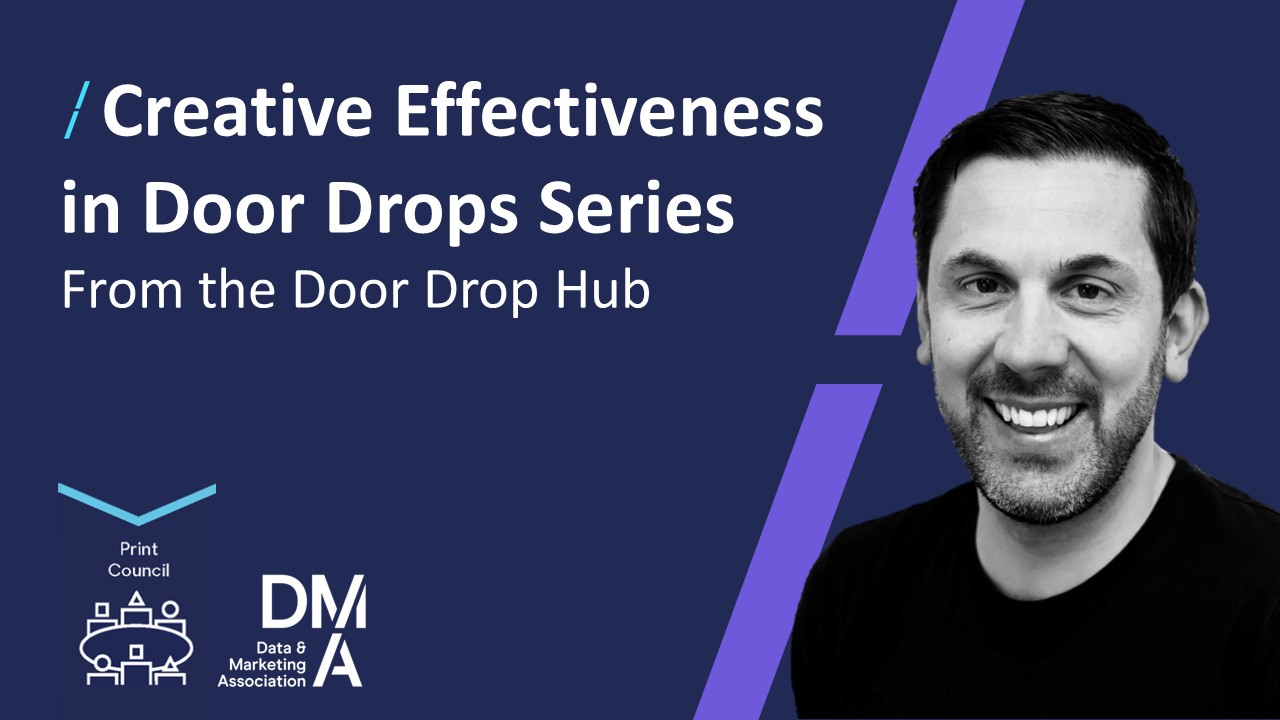



Please login to comment.
Comments